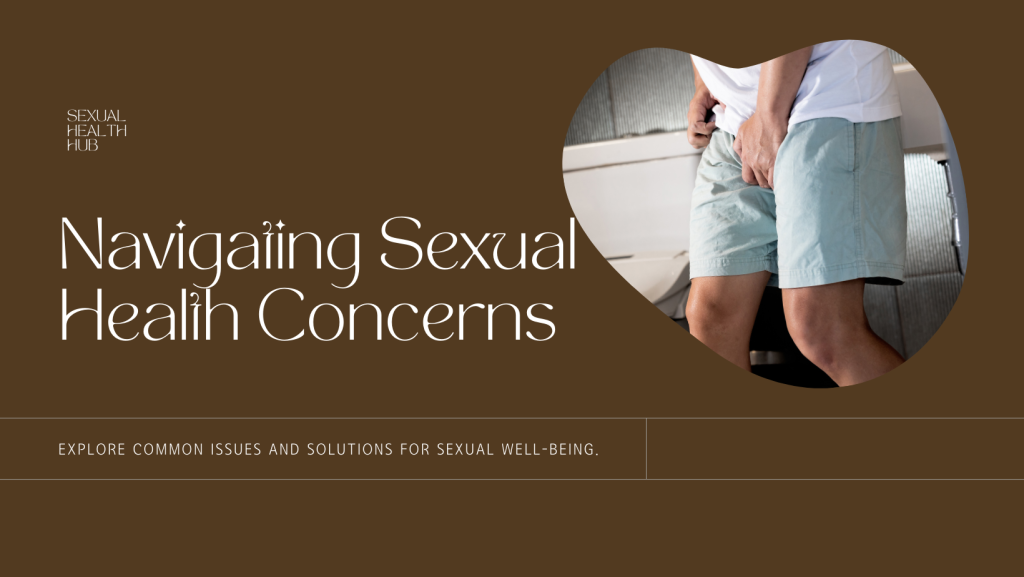Sexual health encompasses a broad range of physical, emotional, and social factors that contribute to overall well-being. However, many individuals may experience concerns or challenges related to sexual health at some point in their lives. By understanding common issues and knowing when to seek support, individuals can navigate sexual health with confidence and empowerment. Let’s explore some common concerns and strategies for addressing them.
- Erectile Dysfunction: Recognizing Causes and Seeking Solutions
Erectile dysfunction (ED) is a common concern that can affect individuals of all ages and backgrounds. While occasional difficulty achieving or maintaining an erection is normal, persistent or recurrent ED may be indicative of an underlying health issue, such as diabetes, heart disease, or psychological factors like stress or anxiety. It’s essential for individuals experiencing ED to speak openly with healthcare providers to identify potential causes and explore treatment options, which may include lifestyle changes, medications, or counseling.
- Sexually Transmitted Infections (STIs): Prevention and Testing
Sexually transmitted infections (STIs) are infections that are spread through sexual contact and can have serious consequences for health if left untreated. Prevention is key to reducing the risk of STIs, and individuals can protect themselves by practicing safer sex, using condoms consistently and correctly, and getting tested regularly. STI testing is quick, confidential, and often available at local clinics, healthcare providers’ offices, or through at-home testing kits. Early detection and treatment of STIs are critical for preventing further transmission and minimizing potential complications.
- Sexual Desire Discrepancy: Navigating Differences in Libido
Sexual desire discrepancy, or differences in libido between partners, is a common concern in many relationships. While it’s natural for individuals to have varying levels of sexual desire, significant discrepancies can sometimes lead to feelings of frustration, resentment, or inadequacy. Open and honest communication between partners is essential for addressing sexual desire discrepancies, as it allows individuals to express their needs, concerns, and desires without judgment. Couples may also benefit from exploring strategies for enhancing intimacy and connection outside of the bedroom, such as spending quality time together, engaging in shared activities, and prioritizing emotional connection.
- Body Image and Sexual Self-Esteem: Cultivating Confidence and Acceptance
Body image and sexual self-esteem can significantly impact sexual health and well-being. Negative body image or low self-esteem may lead to feelings of insecurity, shame, or avoidance of sexual intimacy. Cultivating confidence and acceptance of one’s body is essential for promoting sexual well-being and satisfaction. Individuals can work towards building positive body image and sexual self-esteem by practicing self-care, engaging in activities that promote body positivity, and seeking support from trusted friends, family members, or mental health professionals if needed.
In conclusion, navigating sexual health involves understanding common concerns and knowing when to seek support. By addressing issues such as erectile dysfunction, sexually transmitted infections, sexual desire discrepancy, and body image and sexual self-esteem, individuals can promote a healthy and fulfilling sexual life that enhances overall well-being and quality of life.



